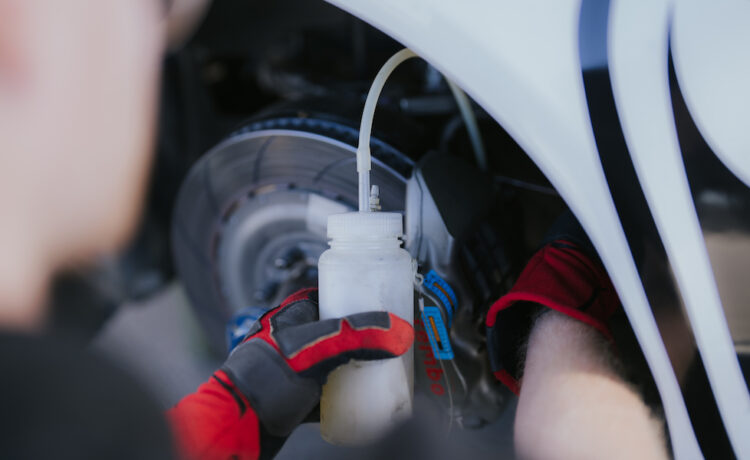Brake fluid serves as a crucial component within a vehicle’s braking system, playing an essential role in ensuring both the safety and effectiveness of the braking mechanism. This hydraulic fluid, when required, facilitates the transmission of force from the brake pedal to the braking components, thereby allowing the vehicle to come to a halt. The condition and quantity of brake fluid are essential elements that must always be considered during brake inspections. Proper maintenance of brake fluid is not only crucial for optimal vehicle performance, but it also plays a significant role in ensuring the safety of all individuals on the road.
The quality of fluid significantly influences operational efficiency
The quality of brake fluid holds greater significance than merely the quantity present. With the passage of time, brake fluid may absorb moisture, resulting in a decrease in its boiling point. In challenging conditions, this phenomenon—referred to as hygroscopicity—has the potential to lead to the evaporation of brake fluid, which may result in brake fade, diminished stopping power, and extended pedal travel. It is essential to assess both the condition and the level of the fluid during inspections. Particulates, cloudiness, or discoloration may indicate a compromise in the fluid’s integrity, necessitating a comprehensive cleansing and replacement process. The effectiveness of braking systems and the safety of drivers are significantly influenced by the maintenance of clean and optimal fluid levels. In this regard, selecting the auto shop in Sugar Land, TX is of utmost importance.
The Impact of Aging and Environmental Pollution
The effectiveness of brake fluid can be significantly influenced by its age and the presence of contaminants. Brake fluid is generally required to be replaced every two years, or more frequently if advised by the vehicle manufacturer. Over time, brake fluid may become tainted by the presence of dirt, moisture, and debris. This contamination has the potential to compromise internal brake system components, necessitating costly repairs. Moreover, brake failure resulting from contaminated brake fluid poses a serious risk to both the driver and passengers. Consequently, to ensure the optimal performance of the braking system, inspections must encompass a thorough assessment of the fluid’s age and the presence of any contaminants.
Benefits of Preventive Maintenance
Regular brake checkups that focus on the brake fluid can substantially enhance the longevity of both the braking system and the vehicle as a whole. By prioritizing these inspections, drivers can prevent minor issues from escalating into significant problems that require costly repairs. Alongside enhancing the safety and cleanliness of the braking system, regular maintenance ensures that the brakes operate effectively when they are needed most. Over the long term, implementing preventive measures can lead to significant savings in both time and money for drivers by enhancing vehicle performance. This includes timely replacement of brake fluid and ensuring that fluid levels are maintained at appropriate levels.
In conclusion
In conclusion, the significance of brake fluid during brake inspections is paramount. This serves as an essential indicator of the braking system’s efficacy across various situations. To ensure a vehicle’s safety and reliability, it is crucial to monitor the fluid levels, assess their quality, consider their age, and check for any signs of contamination. It is essential for drivers to recognize the significance of brake fluid during inspections, as this can enhance their vehicle’s performance, ensure safety, and uphold a more efficient braking system. This will ultimately lead to an enhanced and more secure driving experience.













